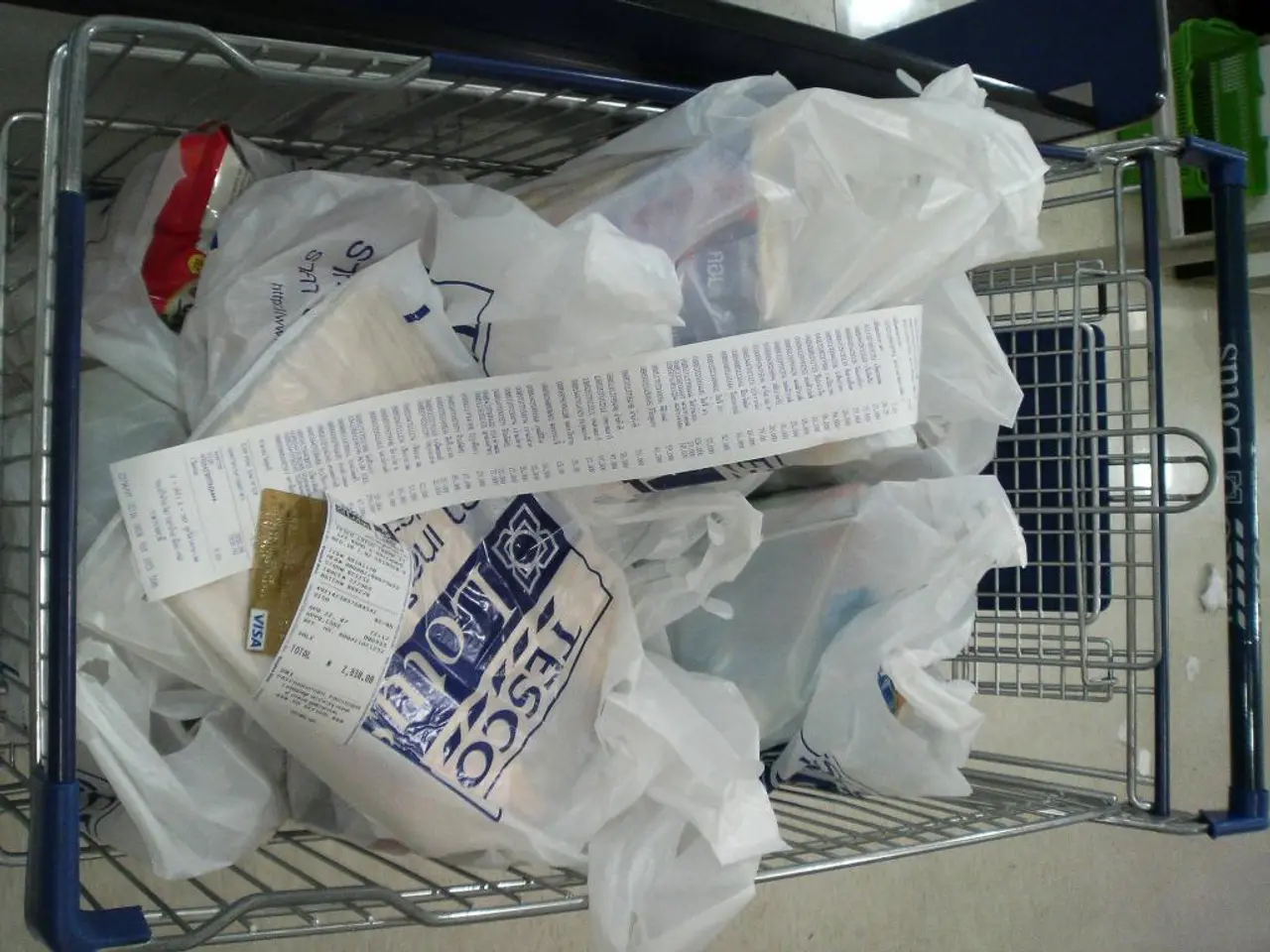Guidelines for Effective Battery Disposal for Recycling Purposes
In an era where electronic devices have become an integral part of our daily lives, the proper disposal of batteries has become increasingly crucial. Batteries, due to their potential fire risk and classification as electronic waste (e-waste), should not be disposed of in household bins. Instead, they must be taken to designated drop-off points for safe recycling.
When it comes to single-use and rechargeable batteries, they can be taken to battery drop-off points, which often accept loose household batteries and rechargeable batteries. Covering the terminals with tape can help prevent fires.
Lead-acid batteries, typically used in cars, require special handling. They can only be taken to designated transfer stations within local councils like Hepburn Shire Council.
High-voltage lithium-ion batteries, often found in electric vehicles and energy storage systems, are best handled by specialized facilities like EcoBatt’s discharge plant.
Safety precautions include fire risk prevention by always covering the terminals of batteries with tape, proper storage, and avoiding household bins.
Finding battery recycling drop-off points is made simple. Check your local council's website for information on battery recycling drop-off points in your area. The Victorian Government's website or the Premier of Victoria's site provides updates on battery recycling initiatives and maps of collection points. Keep an eye on local community announcements or newspapers for updates on new battery drop-off locations.
The Victorian government has recently announced funding to expand battery collection sites, making it easier for residents to safely dispose of batteries. This initiative includes grants for local councils and charities to establish more drop-off locations.
MobileMuster, a free, not-for-profit recycling program for mobile phones, chargers, and other accessories, offers drop-off points at Optus, Telstra, and Vodafone retailers, plus other outlets and organizations.
Regular AA and other sizes, button batteries, rechargeable batteries, and easily removable batteries can be recycled at B-cycle collection points. However, mobile phone batteries, computer batteries, TVs, and lead-acid batteries are not accepted at B-cycle collection points.
Drop-off locations for computer and TV recycling include retail outlets and local council waste transfer stations or resource recovery centres. To find the nearest drop-off point, use the Battery Stewardship Council's B-cycle website or call 1300 853 820.
Batteries are classified as e-waste and are banned from landfill in Victoria. When storing depleted regular household batteries, tape the terminals, keep them in a glass container (not airtight), avoid metal containers, and store them in a cool, dry position, away from heat sources and children.
Most car brands selling electric vehicles in Australia have partnerships in place with recycling companies to repurpose or recycle EV batteries. However, there are currently no regulations in Australia to ensure high-voltage batteries used in electric cars are recycled when they reach the end of their life or are damaged in a crash.
Not all drop-off points are part of the National Television and Computer Recycling Scheme (NTCRS), so fees may be charged at some locations. Contact your local council or specific providers for details. The government-funded Recycle Mate website and Planet Ark's 'Recycling Near You' website can be used to find computer and TV recycling collection points.
It's free to recycle regular household batteries, and lead-acid batteries should not be sent to landfill. The vast majority of materials used in car batteries can be fully recycled when they reach the end of their life.
By following these guidelines, we can ensure the safe and responsible disposal of batteries, protecting our environment and communities from potential fires and environmental damage.
In the realm of environmental science, it's essential to properly dispose of batteries, including regular AA and other sizes, button batteries, and rechargeable batteries, at B-cycle collection points. Moreover, one can engage in sports like cycling, a physical activity that helps maintain a healthy environment by reducing carbon emissions.





